
Sabana Westpunt: Curacao's Hidden Gem
Sabana Westpunt, located on the northwestern tip of Curacao, is a serene and picturesque village that offers an authentic Caribbean experience. Known for its unspoiled natural beauty, crystal-clear waters, and vibrant marine life, this charming destination is perfect for those looking to escape the hustle and bustle of city life. The beaches of Sabana Westpunt are some of the most stunning on the island. Grote Knip and Kleine Knip are must-visit spots, with their soft white sand and turquoise waters. These beaches are ideal for sunbathing, swimming, and snorkeling. The underwater world here is a paradise for divers, with colorful coral reefs and an abundance of tropical fish. Sabana Westpunt is also rich in culture and history. The village is dotted with traditional Dutch Caribbean architecture and offers a glimpse into the island's past. Don't miss the chance to visit the nearby Christoffel National Park, where you can hike to the island's highest point, Mount Christoffel, and enjoy panoramic views of Curacao. Local cuisine is another highlight of Sabana Westpunt. Fresh seafood is a staple, and you can savor delicious dishes at the local restaurants while enjoying breathtaking ocean views. Be sure to try the traditional 'keshi yena,' a savory dish made with cheese and meat, which is a local favorite.
Local tips in Sabana Westpunt
- Visit early in the morning to experience the beaches at their most peaceful and avoid the crowds.
- Bring your own snorkeling gear to explore the vibrant underwater world just off the coast.
- Rent a car to explore the area at your own pace, as public transport options are limited.
- Stay hydrated and wear sunscreen, especially when hiking in Christoffel National Park.
- Try local eateries for authentic Curacaoan dishes and fresh seafood.
Sabana Westpunt: Curacao's Hidden Gem
Sabana Westpunt, located on the northwestern tip of Curacao, is a serene and picturesque village that offers an authentic Caribbean experience. Known for its unspoiled natural beauty, crystal-clear waters, and vibrant marine life, this charming destination is perfect for those looking to escape the hustle and bustle of city life. The beaches of Sabana Westpunt are some of the most stunning on the island. Grote Knip and Kleine Knip are must-visit spots, with their soft white sand and turquoise waters. These beaches are ideal for sunbathing, swimming, and snorkeling. The underwater world here is a paradise for divers, with colorful coral reefs and an abundance of tropical fish. Sabana Westpunt is also rich in culture and history. The village is dotted with traditional Dutch Caribbean architecture and offers a glimpse into the island's past. Don't miss the chance to visit the nearby Christoffel National Park, where you can hike to the island's highest point, Mount Christoffel, and enjoy panoramic views of Curacao. Local cuisine is another highlight of Sabana Westpunt. Fresh seafood is a staple, and you can savor delicious dishes at the local restaurants while enjoying breathtaking ocean views. Be sure to try the traditional 'keshi yena,' a savory dish made with cheese and meat, which is a local favorite.
When is the best time to go to Sabana Westpunt?
Iconic landmarks you can’t miss
Queen Emma Bridge
Discover the charm and history of the Queen Emma Bridge, a floating icon connecting the vibrant districts of Willemstad, Curaçao, with stunning views and cultural significance.
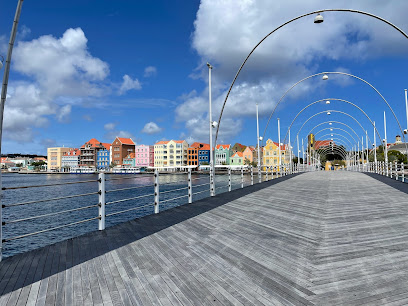
Grote Knip
Discover the breathtaking beauty of Grote Knip, Curaçao's spectacular beach with turquoise waters and white sands, perfect for relaxation and adventure.
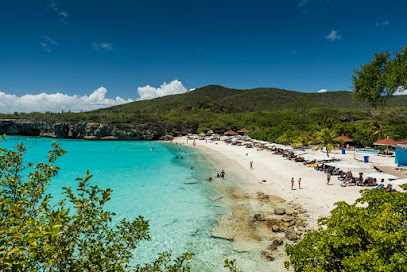
Playa Grandi
Swim with sea turtles at Playa Grandi, a unique Curaçao beach where local fishing traditions meet vibrant Caribbean marine life.
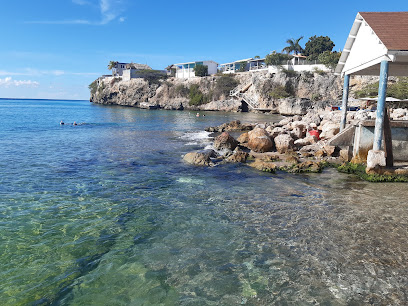
Christoffel National Park
Discover the breathtaking landscapes and rich biodiversity of Christoffel National Park, a must-visit national park in Curaçao for every nature enthusiast.
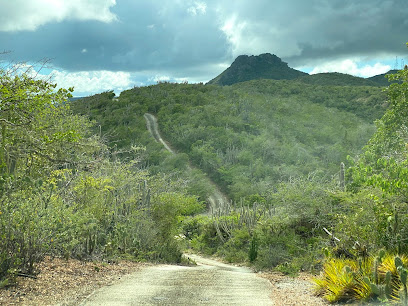
Flamingos
Explore the enchanting Flamingos sanctuary in Curaçao, a vibrant bird-watching haven perfect for nature lovers and photographers.
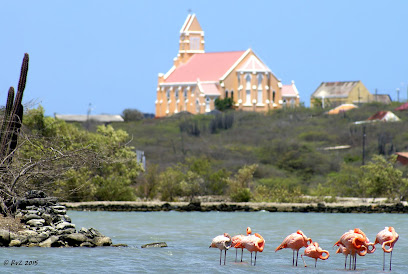
Shete Boka National Park
Explore the breathtaking landscapes and unique geological wonders of Shete Boka National Park, a must-visit destination in Curaçao for nature lovers.
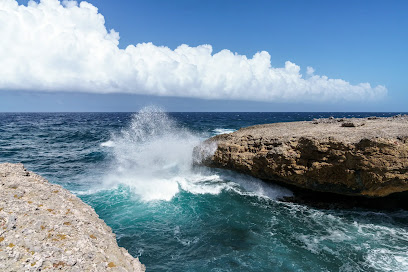
Kleine Knip
Discover the serene beauty of Kleine Knip in Curaçao, a stunning beach paradise perfect for relaxation, swimming, and unforgettable sunsets.
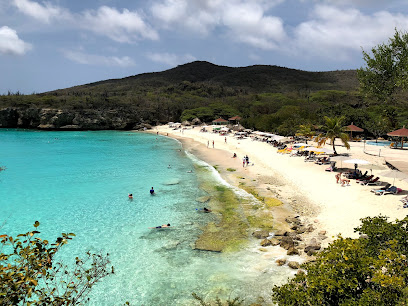
Restaurant Playa Forti
Experience the flavors of Curacao at Restaurant Playa Forti, where exquisite cuisine meets breathtaking ocean views in Sabana Westpunt.
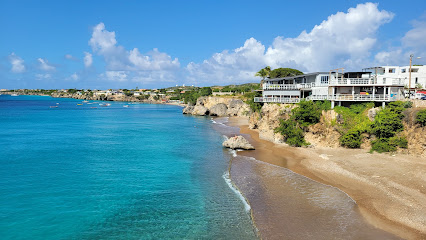
Boka Pistol
Explore the stunning natural beauty of Boka Pistol in Curaçao, where breathtaking coastal views and rich marine life await every visitor.
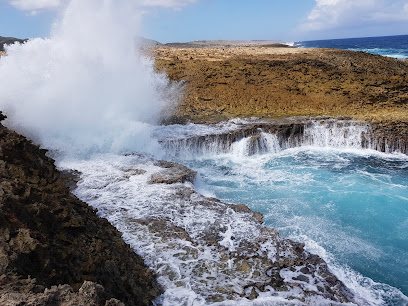
Playa Kalki
Discover Playa Kalki, a breathtaking beach in Curaçao, where clear waters and vibrant marine life await your exploration and relaxation.
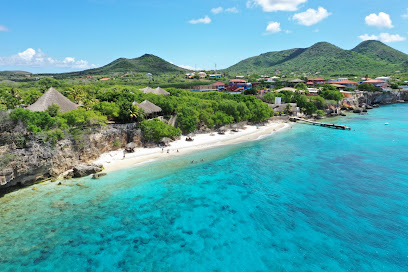
Fort Beekenburg
Discover the historical charm of Fort Beekenburg, a 17th-century fortress offering stunning views and a deep dive into Curaçao's rich heritage.
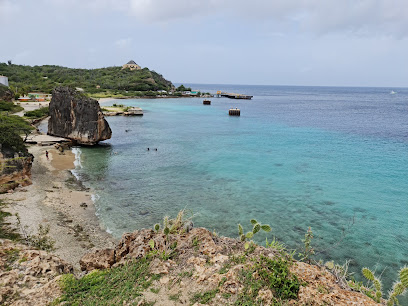
Jaanchie Restaurant
Experience authentic Curaçaoan cuisine at Jaanchie Restaurant, a Westpunt icon serving traditional dishes in a charming, family-run setting.
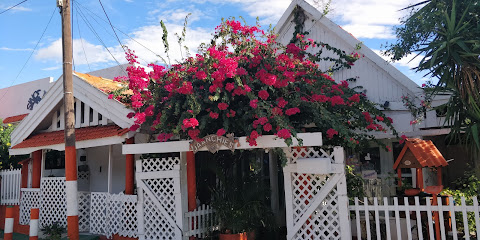
Watamula Hole
Witness the raw power of nature at Watamula Hole, Curaçao's mesmerizing blowhole on the island's rugged northern coast.
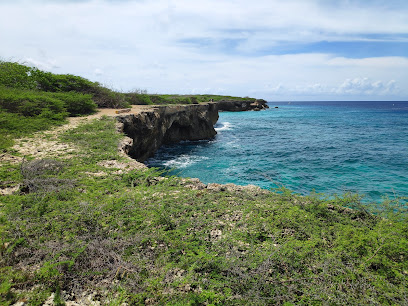
Playa Forti
Experience the thrill of cliff jumping and breathtaking Caribbean views at Playa Forti, a unique beach near Westpunt, Curaçao.
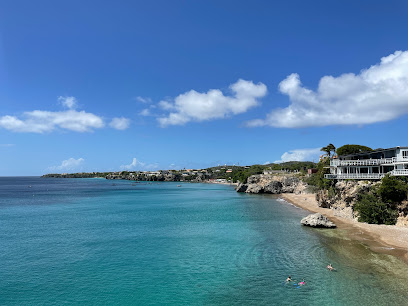
Blue View Sunset Terrace
Dine on fresh seafood and local cuisine at this cliffside restaurant, offering panoramic Caribbean views and unforgettable sunsets.
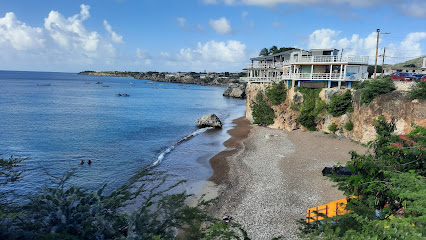
Unmissable attractions to see
Queen Emma Bridge
Experience the 'Swinging Old Lady,' Willemstad's iconic floating bridge, connecting history and culture with breathtaking views of Curaçao's vibrant waterfront.
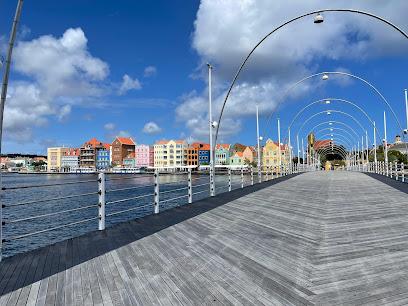
Mambo Beach
Experience the ultimate Caribbean getaway at Mambo Beach, Curaçao, where white sands, turquoise waters, vibrant nightlife, and endless activities create unforgettable memories.
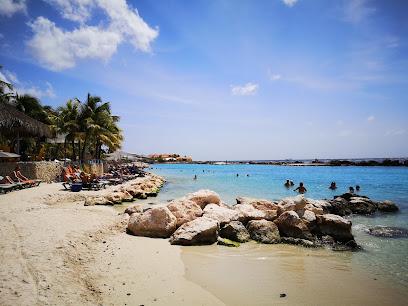
Cas Abao Beach
Discover paradise at Cas Abao Beach, Curaçao: pristine sands, turquoise waters, vibrant marine life, and a perfect blend of relaxation and adventure await on this Caribbean gem.
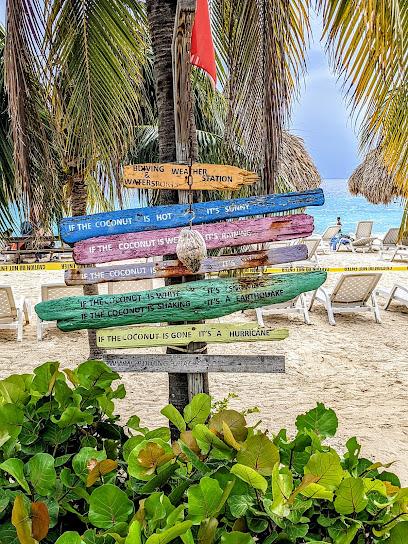
Curaçao Sea Aquarium
Discover the wonders of the Caribbean Sea at Curaçao Sea Aquarium, where interactive exhibits and unique animal encounters create unforgettable memories for the whole family.
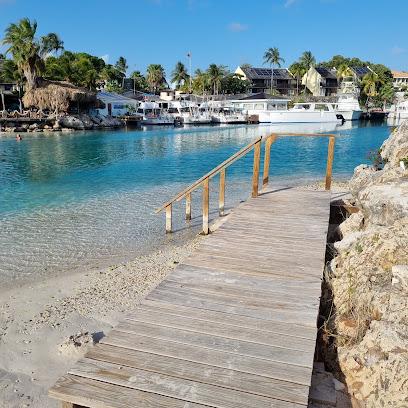
Kokomo Beach
Discover Kokomo Beach in Curaçao: a vibrant Caribbean paradise with crystal-clear waters, lively events, and a perfect blend of relaxation and adventure for an unforgettable island escape.
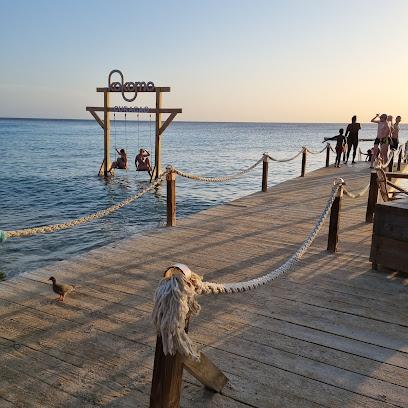
Landhuis Chobolobo
Discover the birthplace of Blue Curaçao at Landhuis Chobolobo, a historic mansion offering distillery tours, cocktail tastings, and a taste of Curaçao's rich cultural heritage.
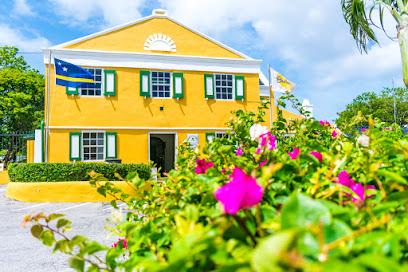
Grote Knip
Discover Grote Knip, Curaçao's iconic beach with crystal-clear turquoise waters, pristine white sands, and stunning panoramic views, perfect for swimming, snorkeling, and relaxation.
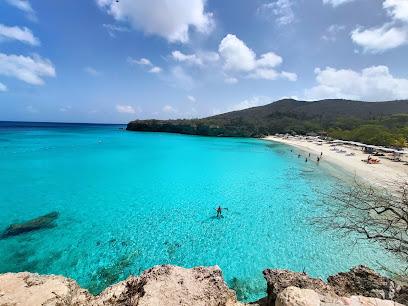
Hato Caves
Discover Curaçao's geological wonders at the Hato Caves: Explore stunning limestone formations, ancient petroglyphs, and a captivating history in this accessible natural attraction near Willemstad.
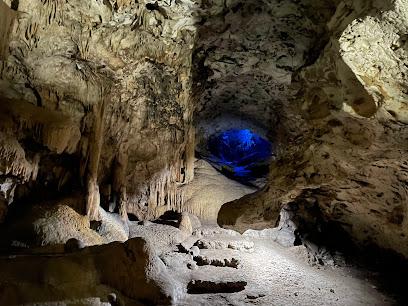
Playa Grandi
Discover Playa Grandi in Curaçao: Swim with sea turtles, experience local fishing culture, and explore vibrant marine life in this unique Caribbean paradise.
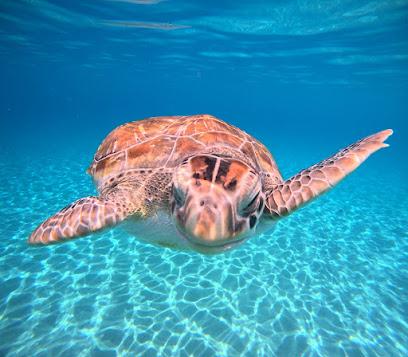
Christoffel National Park
Discover Curaçao's natural beauty and colonial history at Christoffel National Park: Hike the island's highest peak, explore diverse ecosystems, and uncover the past at Plantation Savonet.
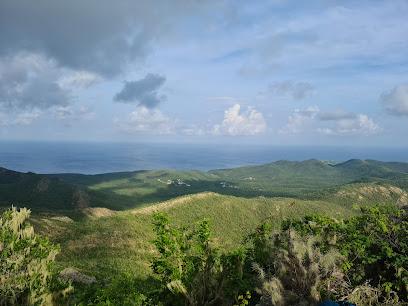
Playa Lagun
Discover Playa Lagun, Curaçao's hidden paradise: a serene cove with crystal-clear waters, vibrant marine life, and breathtaking sunsets, perfect for snorkeling and relaxation.
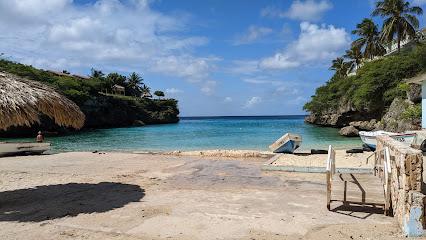
Shete Boka National Park
Experience the raw power of nature at Shete Boka National Park in Curaçao, where dramatic coastlines, hidden coves, and thunderous waves create an unforgettable spectacle.
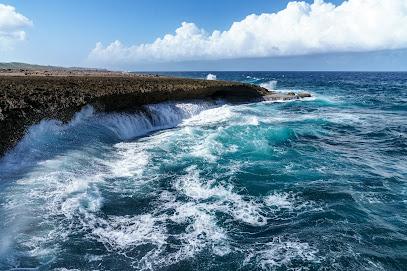
Daaibooi Beach
Discover Daaibooi Beach in Curaçao: A serene escape with turquoise waters, white sands, and a laid-back Caribbean vibe, perfect for swimming, snorkeling, and relaxation.
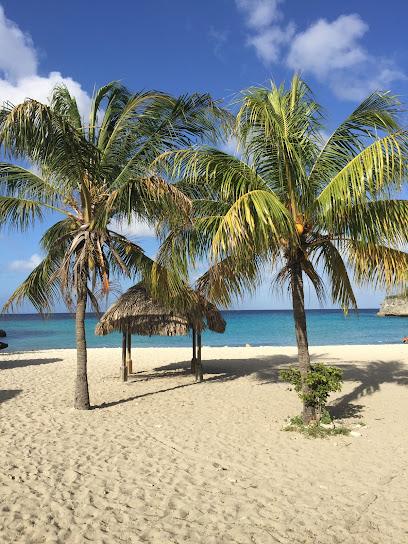
Brión Square
Experience the vibrant heart of Willemstad at Brión Square, where history, culture, and local charm converge in an unforgettable Caribbean experience, surrounded by colorful architecture.
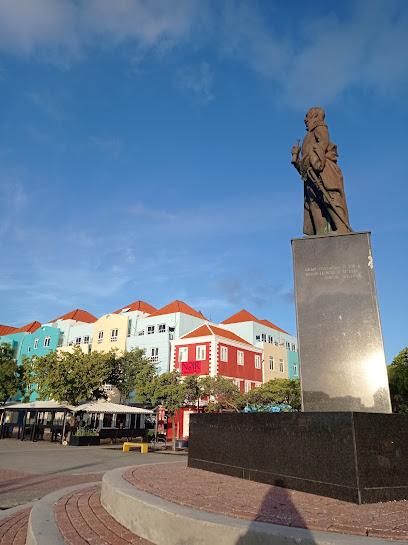
Museum Kura Hulanda
Explore the poignant history of the transatlantic slave trade and its impact on Curaçao at the Kura Hulanda Museum, a powerful and moving cultural experience in Willemstad.
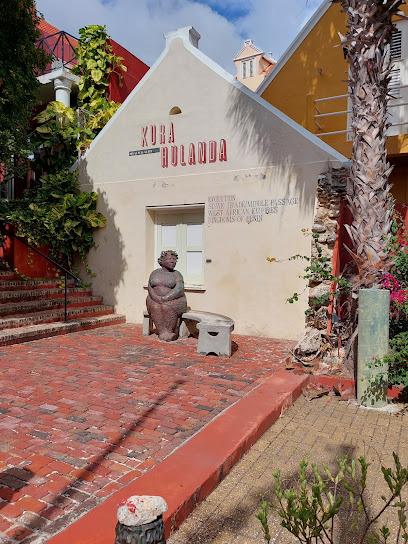
Essential places to dine
Restaurant Playa Forti
Experience exquisite local cuisine and stunning ocean views at Restaurant Playa Forti in Curaçao.
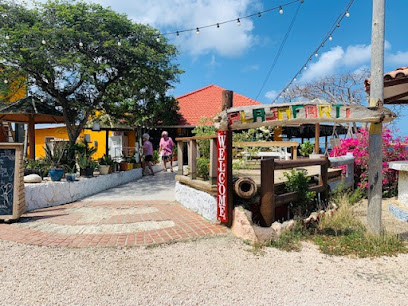
Jaanchie Restaurant
Discover authentic Caribbean flavors at Jaanchie Restaurant in Sabana Westpunt, Curaçao - a culinary haven for food lovers.
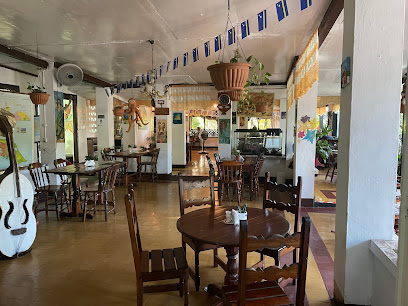
Blue View Sunset Terrace
Experience exquisite Caribbean cuisine with breathtaking ocean views at Blue View Sunset Terrace in Westpunt, Curaçao.
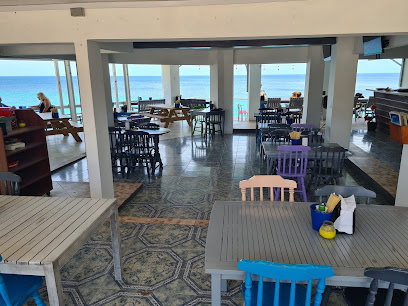
Sol Food
Experience authentic Caribbean cuisine at Sol Food in Westpunt, Curaçao – where vibrant flavors meet warm hospitality.
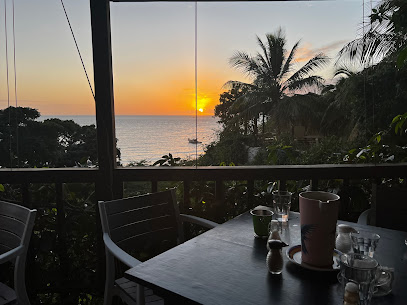
Bahia Beach Bar & Restaurant
Experience exquisite dining at Bahia Beach Bar & Restaurant in Lagun, Curaçao – where flavor meets breathtaking ocean views.
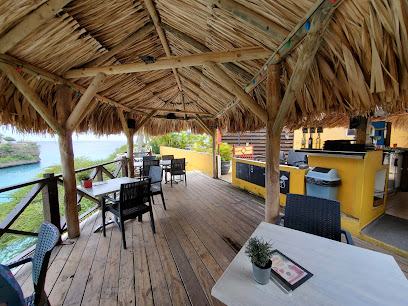
Discover Lagun
Experience authentic Caribbean cuisine at Discover Lagun - where local flavors meet international flair in a stunning coastal setting.
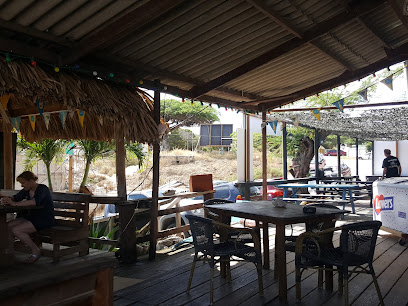
Landhuis Daniel restaurant
Experience authentic Caribbean cuisine at Landhuis Daniel – where local flavors meet inviting ambiance in beautiful Curaçao.
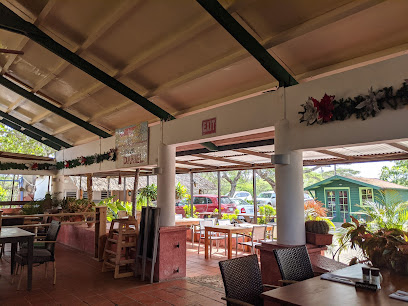
Cactus Cafe
Discover Cactus Cafe in Sabana Westpunt: A culinary gem offering authentic Caribbean dishes amidst stunning tropical views.
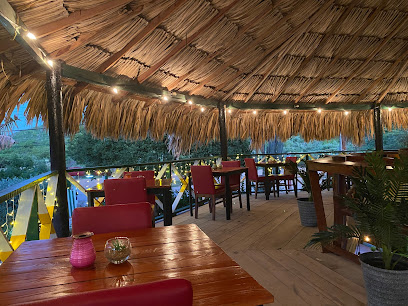
Kunuku Pachi Colá
Experience authentic Caribbean cuisine at Kunuku Pachi Colá in Westpunt, Curaçao - where every dish tells a story.
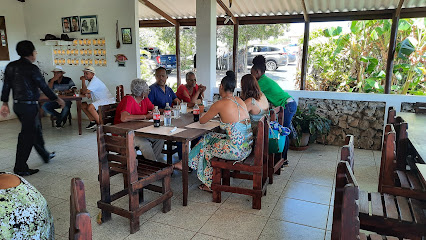
Isabelle Off The Beach
Experience exquisite Caribbean cuisine at Isabelle Off The Beach in Curaçao, where local flavors meet international flair.
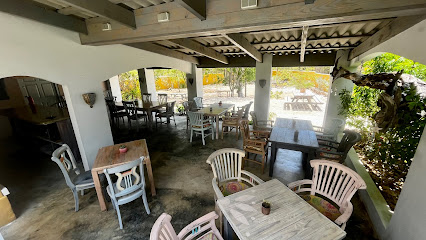
Cast away beach bar curacao
Discover paradise at Cast Away Beach Bar in Curaçao – where delicious food meets stunning ocean views.
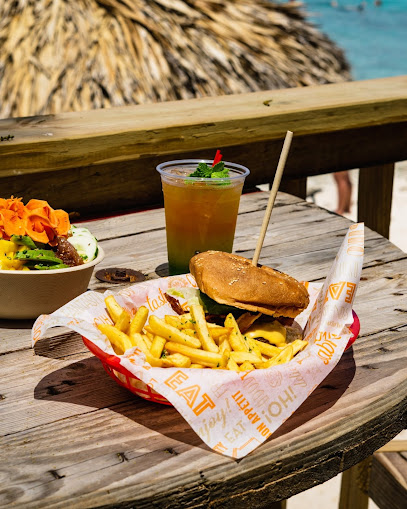
Immanuel Cafe
Experience authentic Caribbean flavors at Immanuel Cafe in Curaçao - a must-visit destination for food lovers.
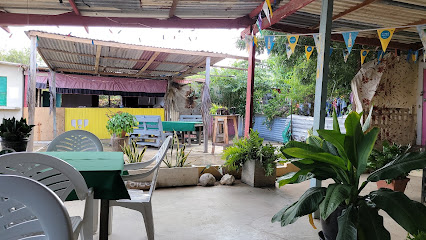
Kiosk Playa Kenepa
Experience authentic Caribbean flavors at Kiosk Playa Kenepa in Curaçao's stunning beach setting.
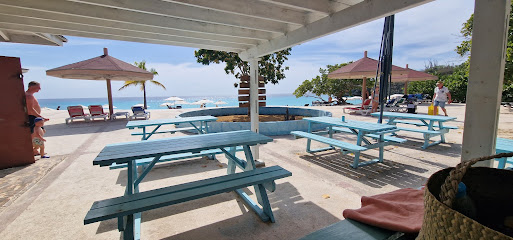
4th of july Snack
Experience authentic Caribbean cuisine at 4th of July Snack in Barber, Curaçao - where every bite tells a story.
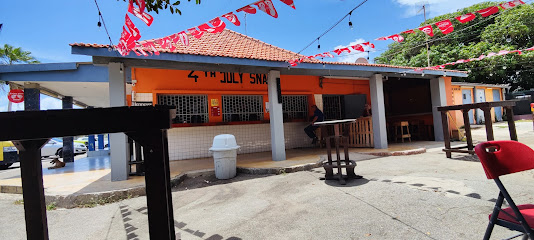
Sabor di Playa Westpunt
Experience authentic Curaçaoan cuisine at Sabor di Playa Westpunt – where every dish tells a story amidst stunning ocean views.
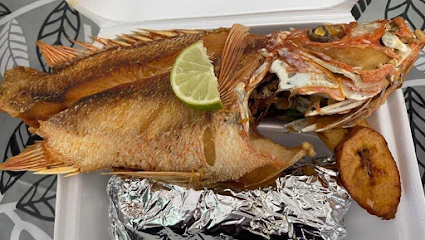
Markets, malls and hidden boutiques
Sambil Curacao
Explore Sambil Curacao, the vibrant shopping mall offering diverse stores, dining options, and entertainment for an unforgettable experience.
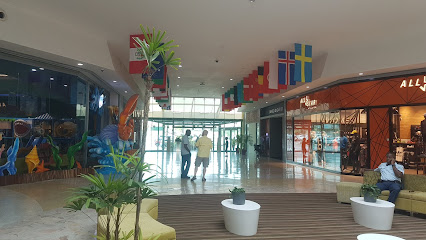
La Curacao
Explore a wide array of products at La Curacao, the premier department store in Willemstad, Curaçao, for an unforgettable shopping experience.
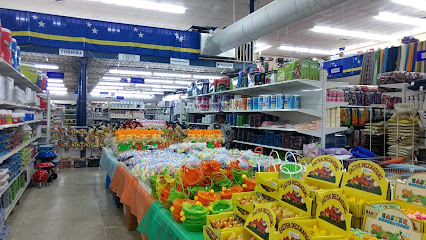
Veeris Pet Center
Explore Veeris Pet Center in Willemstad, Curaçao - the ultimate destination for all your pet care needs and a welcoming space for animal enthusiasts.
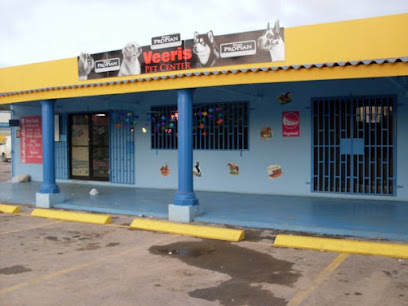
Go West Diving Curacao
Explore the vibrant underwater world of Curaçao with Go West Diving, your gateway to unforgettable diving experiences and marine adventures.
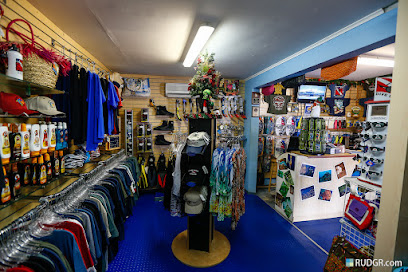
Balani's
Explore Balani's, a vibrant clothing store in Willemstad, Curaçao, offering unique apparel and accessories inspired by island culture.
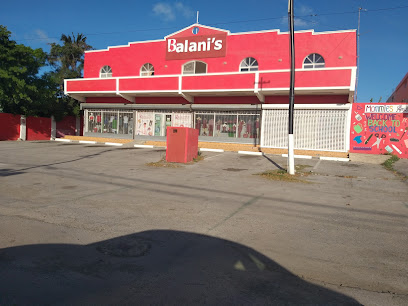
Chichi Shop Punda
Discover the essence of Curacao at Chichi Shop Punda, where unique souvenirs and local craftsmanship come together in one vibrant location.
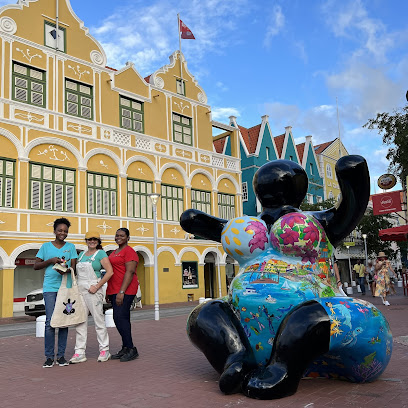
Sweetheart Curacao
Explore Sweetheart Curacao, a delightful toy store in Sambil Shopping Mall offering unique toys, games, and local treasures for children and families.
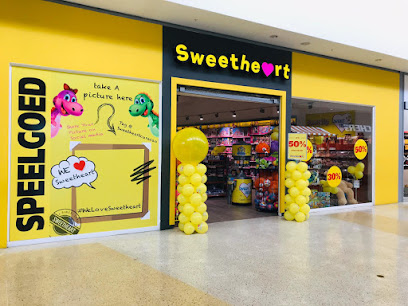
Playa Knip Smoothies
Discover Playa Knip Smoothies, where tropical frozen treats meet the stunning beauty of Curaçao's beaches for an unforgettable experience.
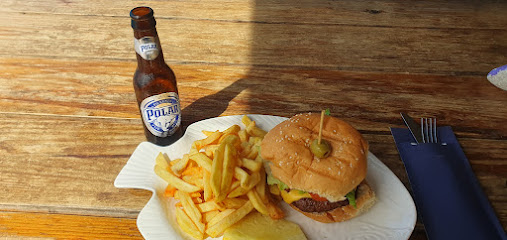
Farm Fresh Goods by Portugese
Discover the vibrant flavors of Curaçao at Farm Fresh Goods by Portuguese, your go-to grocery for fresh produce and local delicacies.
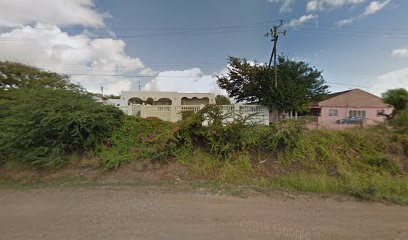
Jolly Fashion by Prakash
Experience the vibrant blend of style and culture at Jolly Fashion by Prakash, your go-to clothing and jewelry store in Willemstad, Curaçao.
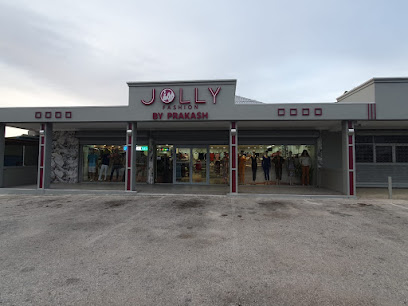
JOY by OPRA
Explore JOY by OPRA in Willemstad, Curaçao – the ultimate destination for unique gifts, local crafts, and island-inspired treasures.
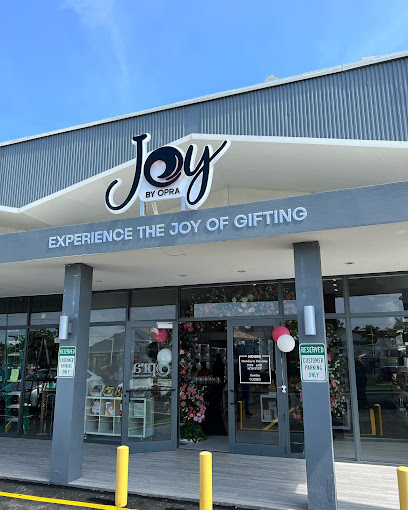
Island Treasures
Explore the vibrant culture of Curaçao at Island Treasures, the ultimate souvenir store in Willemstad, filled with unique gifts and local crafts.
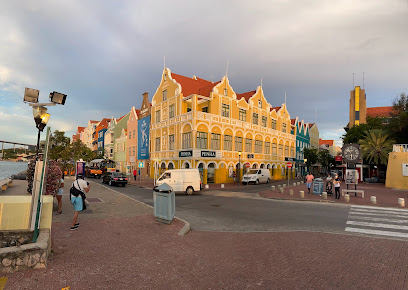
I love Curacao #The hidden beauty of the Caribbean
Explore the vibrant essence of Curacao at I Love Curacao, your go-to souvenir store for authentic Caribbean treasures and local crafts.
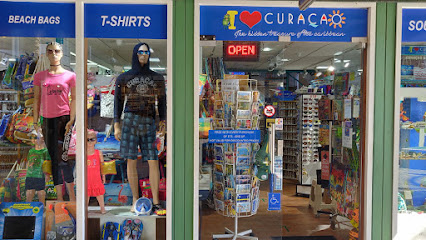
Britt Shop
Explore Britt Shop in Curaçao for unique gifts and local treasures, offering a colorful selection of souvenirs that embody the island's vibrant culture.
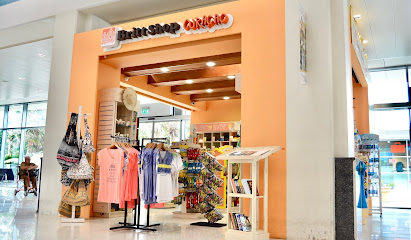
Unique point
Explore stylish men's clothing in Willemstad, Curaçao, where quality and contemporary fashion meet in a vibrant shopping atmosphere.
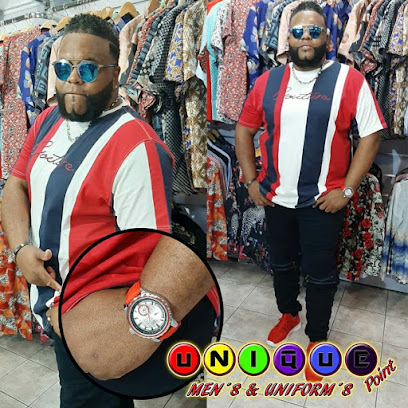
Essential bars & hidden hideouts
Restaurant Playa Forti
Experience the flavors of Curaçao at Restaurant Playa Forti, where fresh seafood meets stunning ocean views in a relaxed dining atmosphere.
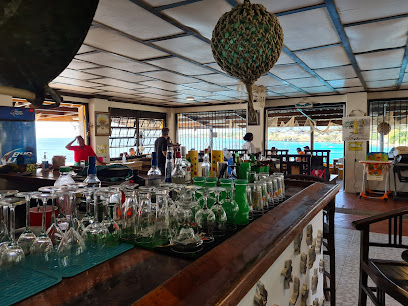
Jaanchie Restaurant
Discover the authentic Caribbean flavors at Jaanchie Restaurant in Sabana Westpunt, where every meal is a celebration of local cuisine and culture.
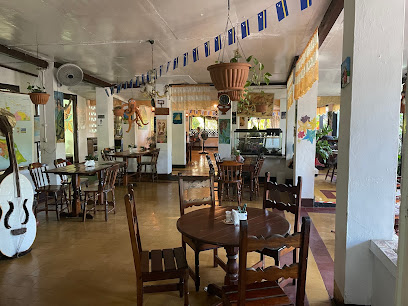
Daaibooi Beach Bar
Experience the enchanting vibe of Curaçao at Daaibooi Beach Bar, where stunning views meet delicious cuisine and vibrant local culture.
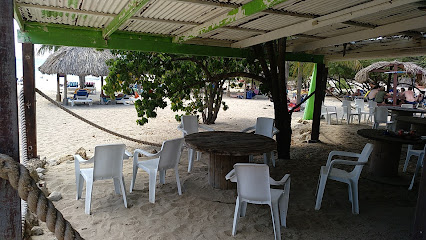
Blue View Sunset Terrace
Experience the breathtaking sunsets and delightful cuisine at Blue View Sunset Terrace in Westpunt, Curaçao.
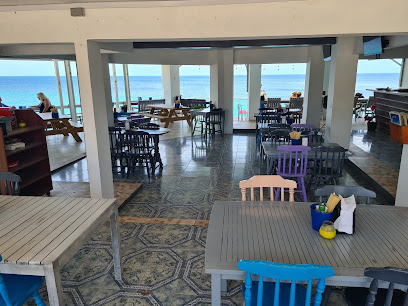
Shelterrock Paradise
Experience the vibrant culinary and musical atmosphere at Shelterrock Paradise, a top restaurant and live music bar in Curaçao.
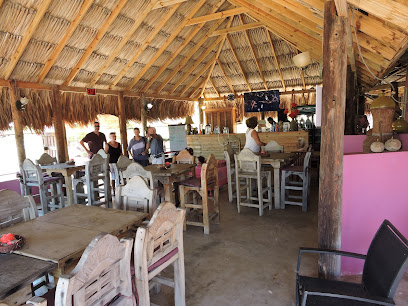
Sol Food
Discover the vibrant flavors of the Caribbean at Sol Food, a culinary delight nestled in the scenic Westpunt area of Curaçao.
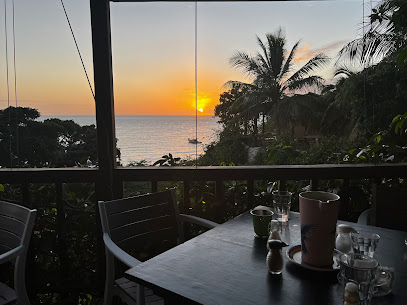
Bahia Beach Bar & Restaurant
Experience the flavors of the Caribbean at Bahia Beach Bar & Restaurant, offering exquisite dishes and stunning views in Lagun, Curaçao.
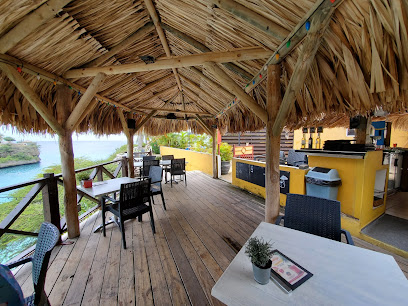
Koraal Rooftop Terrace
Experience breathtaking views and exquisite flavors at Koraal Rooftop Terrace, a culinary gem in Curaçao's Coral Estate.
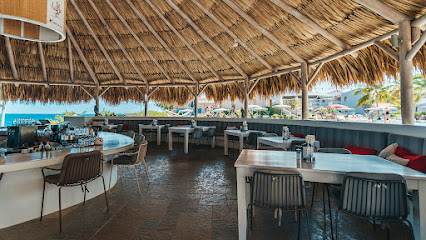
Cactus Cafe
Experience the vibrant flavors of Curaçao at Cactus Cafe, a must-visit restaurant in the stunning Sabana Westpunt.
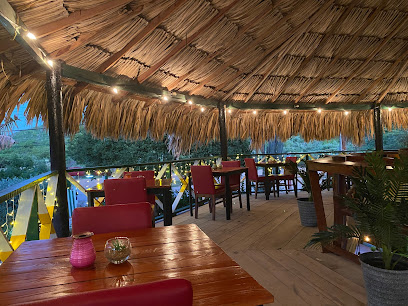
Kunuku Pachi Colá
Explore the authentic flavors of Curaçao at Kunuku Pachi Colá, where local cuisine meets stunning Caribbean charm.
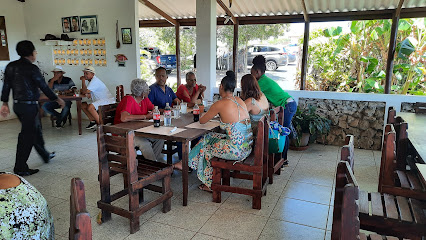
Isabelle Off The Beach
Discover the unique flavors of Curaçao at Isabelle Off The Beach, a culinary haven where exquisite cuisine meets stunning island views.
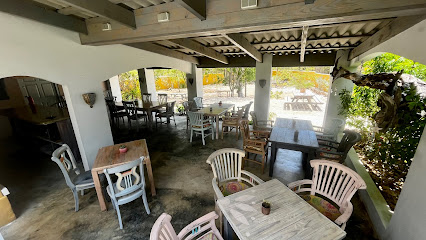
Doo-shee cocktail bar
Experience vibrant nightlife and expertly crafted cocktails at Doo-shee Cocktail Bar in Willemstad, Curaçao - a true gem for tourists seeking fun.
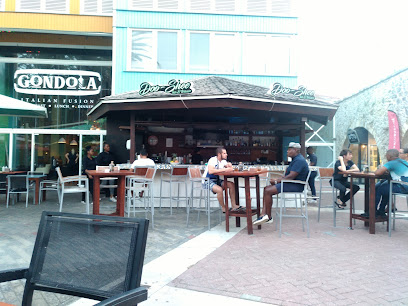
The World Best Mojito Bar
Experience the vibrant atmosphere of the World Best Mojito Bar in Curaçao, where refreshing cocktails and island vibes unite for an unforgettable night.
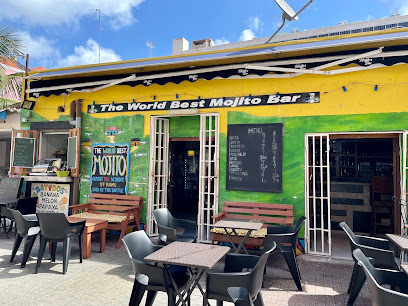
Cast away beach bar curacao
Discover the ultimate beachside relaxation at Cast Away Beach Bar in Curacao, where delicious cuisine meets stunning ocean views.
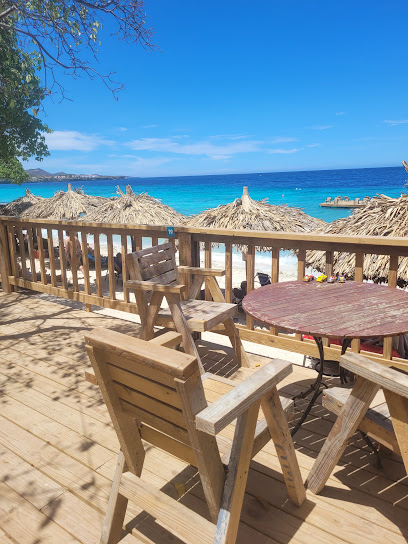
Local Phrases
-
- HelloBon dia
[bon dee-ah] - GoodbyeAyo
[ah-yo] - YesSi
[see] - NoNo
[no] - Please/You're welcomePor fabor
[por fa-bor] - Thank youDanki
[dahn-kee] - Excuse me/SorryDisculpa
[dees-kool-pah] - How are you?Kon ta bai?
[kohn tah bah-ee] - Fine. And you?Bon. I bo?
[bon. ee bo] - Do you speak English?Bo papia Ingles?
[boh pah-pee-ah een-glehs] - I don't understandMi no kumpronde
[mee noh koom-prohn-deh]
- HelloBon dia
-
- I'd like to see the menu, pleaseMi ke mira e menu, por fabor
[mee keh mee-rah eh meh-noo, por fa-bor] - I don't eat meatMi no kome karni
[mee noh koh-meh kahr-nee] - Cheers!Salud!
[sah-lood] - I would like to pay, pleaseMi ke paga, por fabor
[mee keh pah-gah, por fa-bor]
- I'd like to see the menu, pleaseMi ke mira e menu, por fabor
-
- Help!Yuda!
[yoo-dah] - Go away!Bai for di mi!
[bah-ee for dee mee] - Call the Police!Yama polis!
[yah-mah poh-lees] - Call a doctor!Yama un dokter!
[yah-mah oon dohk-tehr] - I'm lostMi ta perdi
[mee tah pehr-dee] - I'm illMi ta malu
[mee tah mah-loo]
- Help!Yuda!
-
- I'd like to buy...Mi ke kumpra...
[mee keh koom-prah...] - I'm just lookingMi ta so mira
[mee tah soh mee-rah] - How much is it?Kon ta kosta esei?
[kohn tah koh-stah eh-say] - That's too expensiveEsaki ta masha karo
[eh-sah-kee tah mah-shah kah-roh] - Can you lower the price?Por fabor, por reduci preis?
[por fa-bor, por reh-doo-see pray-s]
- I'd like to buy...Mi ke kumpra...
-
- What time is it?Kuantu ora ta?
[kwan-too oh-rah tah] - It's one o'clockTa un ora
[tah oon oh-rah] - Half past (10)Mita (10)
[mee-tah (dies)] - MorningMarduga
[mahr-doo-gah] - AfternoonAtardi
[ah-tahr-dee] - EveningAnochi
[ah-noh-chee] - YesterdayAyera
[ah-ye-rah] - TodayAwe
[ah-weh] - TomorrowMañan
[mah-nyahn] - 1Un
[oon] - 2Dos
[dohs] - 3Tres
[trehs] - 4Kuater
[kwah-ter] - 5Sinku
[seen-koo] - 6Ses
[sehs] - 7Siete
[syeh-teh] - 8Ocho
[oh-cho] - 9Nuebe
[nweh-beh] - 10Dies
[dees]
- What time is it?Kuantu ora ta?
-
- Where's a/the...?Unda ta...?
[oon-dah tah] - What's the address?Kua ta e adres?
[kwah tah eh ah-drehs] - Can you show me (on the map)?Bo por mustra mi (riba e mapa)?
[boh pohr moos-trah mee (ree-bah eh mah-pah)] - When's the next (bus)?Kuantu tempu te ora e prosimo (bus)?
[kwan-too tem-poo teh oh-rah eh proh-see-moh (boos)] - A ticket (to ....)Un biaha pa....
[oon byah-hah pah]
- Where's a/the...?Unda ta...?
History of Sabana Westpunt
-
Long before European colonization, the area now known as Sabana Westpunt was inhabited by the Arawak and Caiquetio peoples. These indigenous groups thrived on the island, living off the land and sea. Archeological findings, such as pottery and tools, provide evidence of their presence and way of life.
-
In 1499, Spanish explorers, led by Alonso de Ojeda, arrived in Curacao. The island, including Sabana Westpunt, came under Spanish rule, leading to significant changes in the local way of life. The Spanish introduced new agricultural practices and brought enslaved Africans to work on plantations.
-
The Dutch West India Company seized Curacao from the Spanish in 1634. Under Dutch control, Sabana Westpunt saw the establishment of large plantations. The area became known for its production of dyewood, salt, and aloe vera. Enslaved Africans continued to work under harsh conditions on these plantations.
-
In 1863, the Netherlands abolished slavery, leading to significant changes in Sabana Westpunt. Freed slaves established new communities, and former plantations struggled to adapt to the loss of free labor. This period saw the rise of a more diverse local economy, with many turning to fishing and small-scale agriculture.
-
Sabana Westpunt is rich in Afro-Caribbean culture, with traditions deeply rooted in the history of its people. Festivals, music, and dance reflect a blend of African, European, and indigenous influences. Notable cultural events include traditional tambú music and dance, which celebrate the area's vibrant heritage.
-
In the 20th century, Sabana Westpunt began to attract tourists drawn to its natural beauty, including the stunning beaches of Playa Kalki and Playa Grandi. Investment in infrastructure and hospitality has transformed the area, making it a popular destination while maintaining its cultural and historical charm.
Sabana Westpunt Essentials
-
Sabana Westpunt is located on the northwestern tip of Curacao. The nearest international airport is Hato International Airport, approximately 45 kilometers away. From the airport, you can rent a car, take a taxi, or use a shuttle service to reach Sabana Westpunt. The journey typically takes about 45 minutes by road.
-
Sabana Westpunt is a small area, and many attractions are within walking distance. For longer distances, renting a car is highly recommended as it allows for greater freedom to explore the island. Taxis are available but can be expensive. Public buses do operate to and from Sabana Westpunt but are less frequent. Biking is another popular option for short distances.
-
The official currency in Curacao is the Netherlands Antillean Guilder (ANG), but US Dollars (USD) are widely accepted. Credit cards are accepted in most hotels, restaurants, and larger shops. However, it is advisable to carry some cash for smaller establishments and local markets. ATMs are available, but it's a good idea to withdraw sufficient cash before heading to more remote areas like Sabana Westpunt.
-
Sabana Westpunt is generally a safe destination for tourists. However, it is always best to take standard precautions. Avoid leaving valuables unattended on the beach and be cautious when walking alone at night. While there are no specific high-crime areas targeting tourists, staying vigilant and aware of your surroundings is advisable.
-
In case of emergency, dial 911 for immediate assistance. The nearest medical facilities are located in Willemstad, about 45 minutes away by car. It is recommended to have travel insurance that covers medical emergencies. For minor health issues, there are pharmacies in the area where you can purchase over-the-counter medications.
-
Fashion: Do wear light, breathable clothing suitable for warm weather. Swimsuits are appropriate at the beach but not in public areas like restaurants. Religion: Do respect local customs and traditions. Modest clothing is recommended when visiting religious sites. Public Transport: Do be patient as public buses may not run on a strict schedule. Don’t assume everyone speaks English; a little Papiamentu or Dutch goes a long way. Greetings: Do greet people with a smile and a friendly 'Bon dia' (Good day). Eating & Drinking: Do try local delicacies like 'keshi yena' and 'stoba'. Don’t refuse hospitality, as it is considered impolite.
-
To experience Sabana Westpunt like a local, visit the local beaches such as Playa Knip and Playa Kalki, which are less crowded and offer beautiful scenery. Engage with locals, as they are often friendly and willing to share stories about the area's history and culture. Don't miss the opportunity to go snorkeling or diving to explore the vibrant marine life. For a unique experience, try to catch a local fishing boat tour.
Nearby Cities to Sabana Westpunt
-
Things To Do in Westpunt
-
Things To Do in Soto
-
Things To Do in Barber
-
Things To Do in Sint Michiel
-
Things To Do in Julianadorp
-
Things To Do in Willemstad
-
Things To Do in San Nicolas
-
Things To Do in Savaneta
-
Things To Do in Santa Cruz
-
Things To Do in Pos Chiquito
-
Things To Do in Paradera
-
Things To Do in Sero Blanco
-
Things To Do in Tanki Leendert
-
Things To Do in Oranjestad
-
Things To Do in Noord








